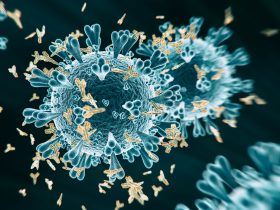Pre-existing influenza immunity is affected by a variety of variables and varies considerably within and between influenza subtypes. Participants were vaccinated with split, inactivated FluzoneTM in four consecutive influenza seasons. Repeat vaccination had an effect on the breadth and durability of functional antibodies for total IgG and IgA anti-hemagglutinin (HA) binding antibodies as well as hemagglutination-inhibition (HAI) activity against both influenza B lineages. In future years, several individuals were able to maintain strong seroprotective titers against the vaccine strains, resulting in low vaccination-induced seroconversion rates. This was notably noticeable in younger individuals, who had larger titers and maintained them throughout the next season. HAI titers in older patients, on the other hand, were usually lower and more likely to decrease before the start of the following influenza season. Seroconversion was connected with immunological recall or “back-boosting” to antigenically similar viruses.
Overall, influenza vaccination generated widely reactive immune responses within a lineage as well as cross-reactive immune responses between lineages in both young and old persons. This study demonstrated the importance of age and influenza exposure history in predicting an individual’s capacity to react to future influenza infections.








Leave a Reply